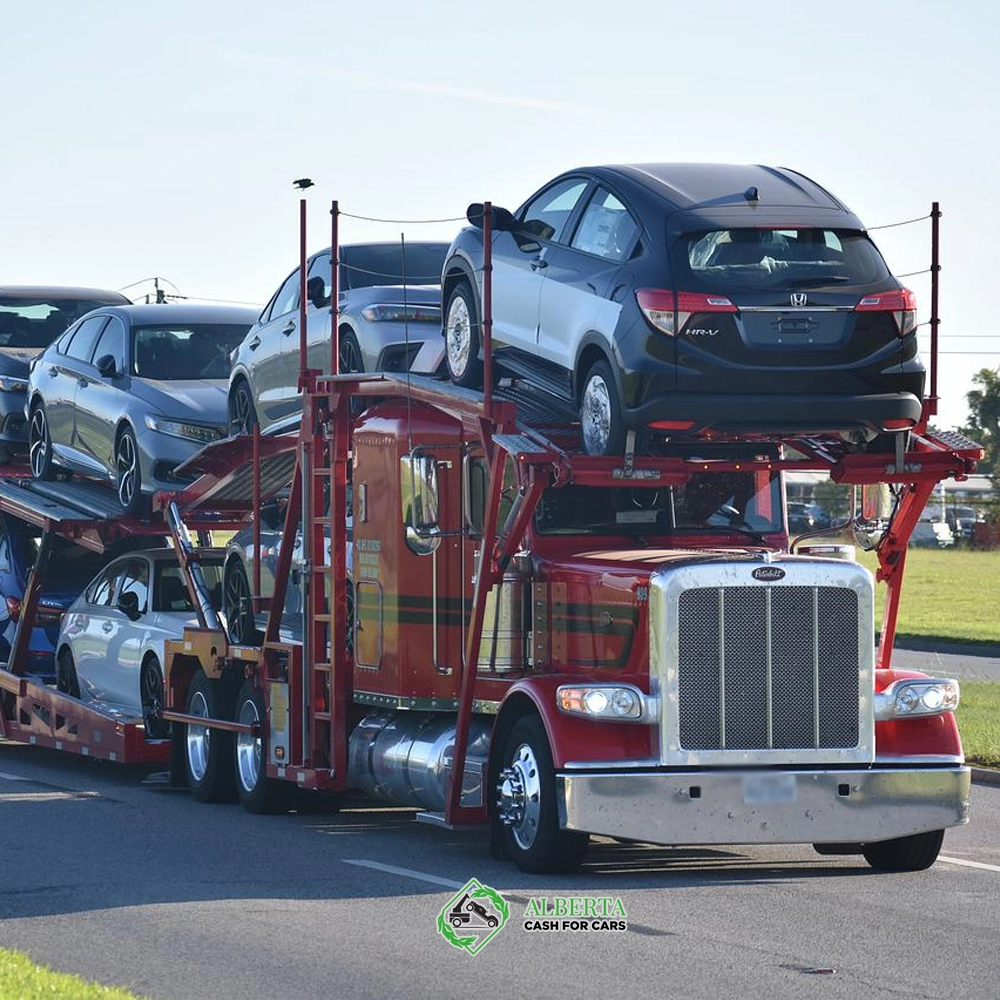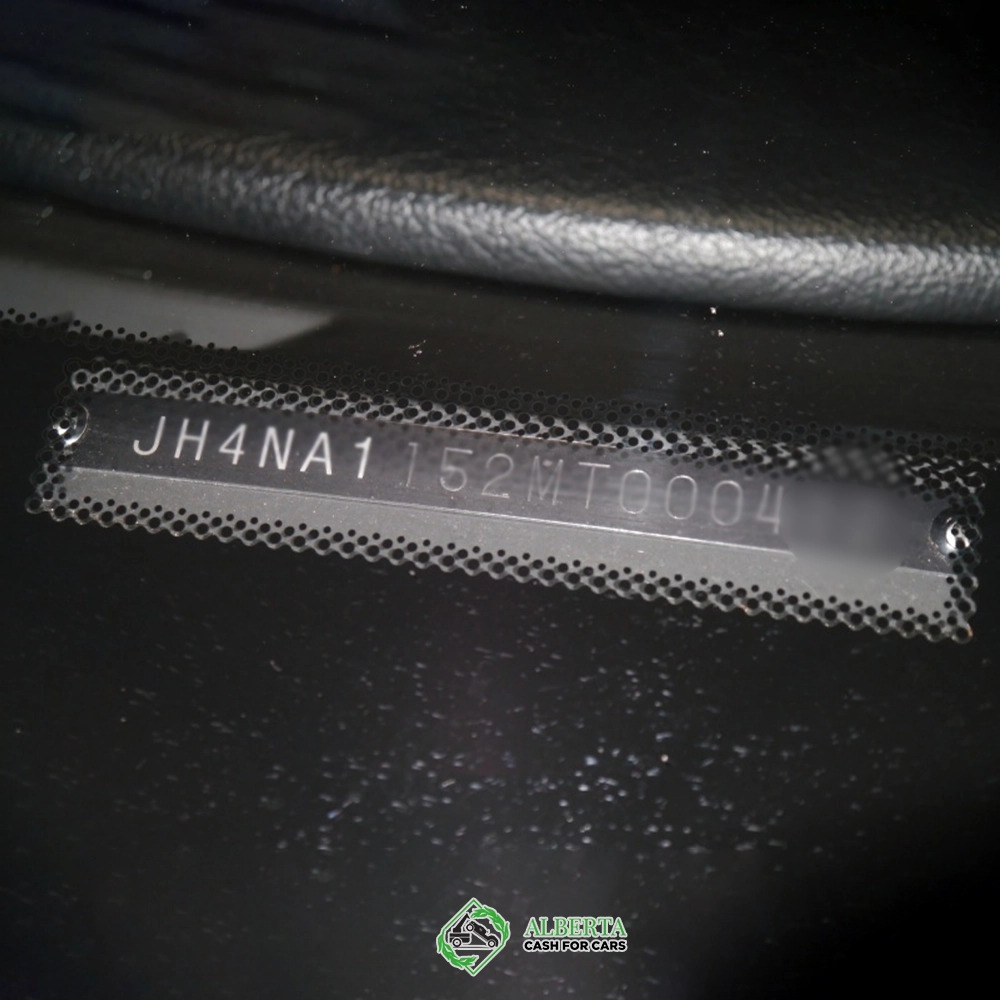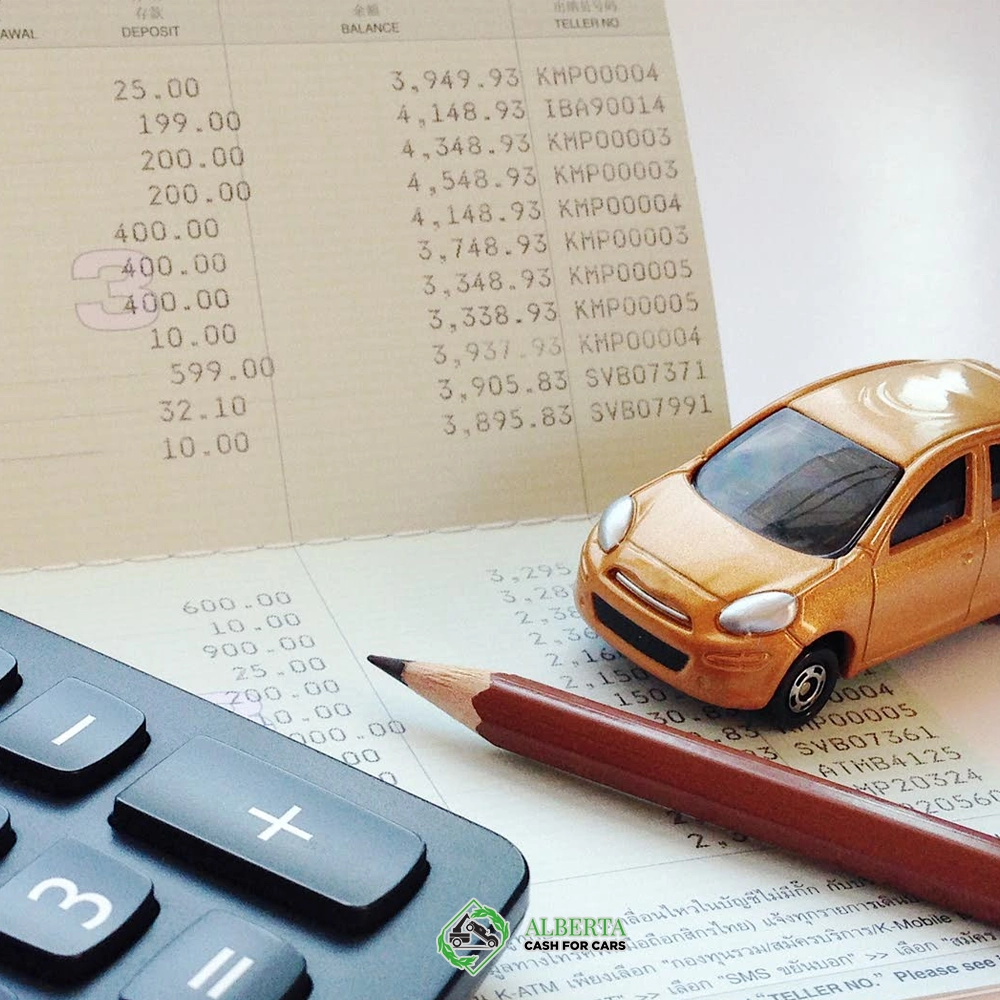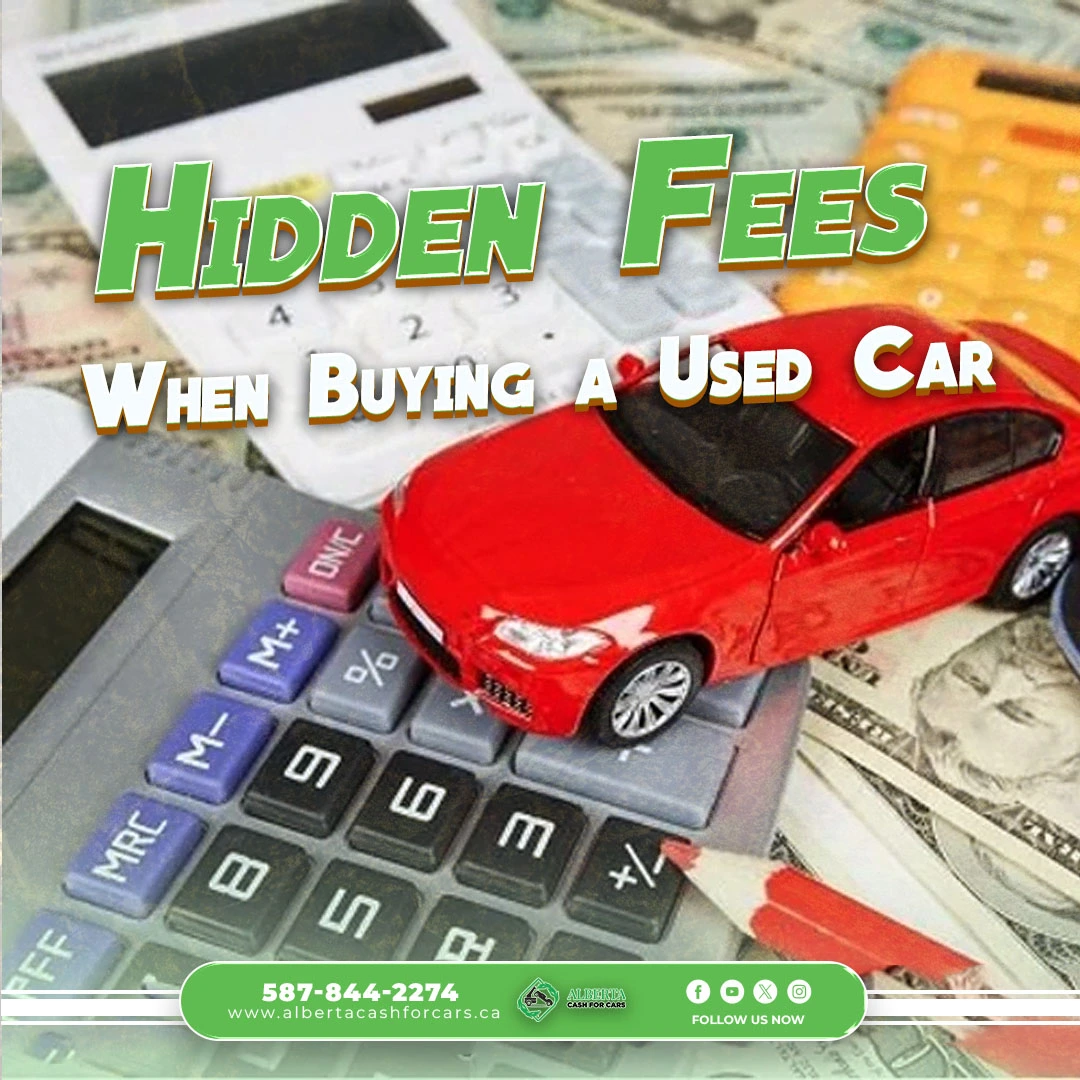Buying a used car can seem like a maze of pricing factors beyond just the listed sticker price. Car shoppers need to be aware of the various hidden fees and charges dealerships and lenders frequently tack on to used vehicle purchases. These unexpected costs quickly inflate the total price tag. From documentation fees to financing items, there are numerous ways used car dealers creatively boost revenues on top of the negotiated vehicle price. Knowing which sneaky fees to anticipate before entering negotiations and finance discussions will help used car buyers anticipate the true total cost accurately.
This overview covers the most common hidden fees when buying a used car so there are no budget-busting surprises. Going in with eyes wide open helps consumers determine reasonable overall pricing and improves the cash for cars Calgary experience.
No Hassle, Just Cash — Book Your Free Pickup or Quote Today!
Common Hidden Fees for When Buying a Used Car to Watch
Destination Fee

The destination fee covers the cost of shipping a car from the assembly plant to the dealership. It typically ranges from a few hundred dollars to $1,500. However, it’s important to note that this fee only applies to new cars and should not be present on a used car invoice as hidden fees when buying a used car. If you come across a destination fee for a used car, it’s advisable to question it and request its removal. After all, there’s no reason for you to bear the transportation cost of a vehicle already delivered to the dealership.
Related Post:
A Complete List of Things to Do Before Selling Your Car
Dealer Preparation Fee
Some dealers may include a dealer preparation or dealer prep fee, which supposedly covers the cost of preparing a car for sale. This fee can range from $100 to $400 and may encompass services like washing, waxing, vacuuming, inspecting, and adjusting the vehicle. However, these are routine tasks that dealers should perform as part of their regular business practices, and charging extra for them is unnecessary. You can challenge this fee and request the dealer to waive it or adjust the car’s price accordingly.
Documentation or admin fees charged by the dealership
Dealer fees, sometimes referred to as documentation or admin fees, are charged by a dealership to pay for the costs of handling the hidden fees when buying a car Canada. These fees are intended to balance the transaction handling costs and are regarded as a component of the dealer’s overhead costs. Consumers must be informed about these costs and how they might differ between dealerships. Here are some important things to think about:
Purpose of Documentation Fees:
Documentation fees are meant to cover the administrative costs associated with processing the paperwork for the sale of a vehicle. This includes preparing contracts, filing paperwork with the appropriate authorities, and handling other administrative tasks.
Different Amounts:
Documentation fees can range in price from dealership to dealership. Dealerships frequently set up their fees, and in certain circumstances, these fees may be reached.
Inclusion in Advertised Prices:
Some dealerships may include documentation fees in the advertised price of the vehicle, while others may list them separately. Always clarify whether the advertised price includes these fees or not.

Negotiability:
While some fees associated with a vehicle purchase, such as government taxes, are non-negotiable, documentation fees may be open to negotiation. Buyers can inquire about these fees and ask if they can be reduced or waived.
Disclosure Requirements:
In some countries, dealerships may be required by law to disclose documentation fees to buyers. This transparency allows consumers to be informed about the total cost of the transaction.
Itemized Breakdown:
When reviewing the sales contract, buyers should look for an itemized breakdown of fees, including documentation fees. This breakdown helps buyers understand the individual components of the total cost.
Reasonableness of Fees:
While documentation fees are common, buyers should assess whether the fees charged by a particular dealership are reasonable. Excessive fees could be a point of negotiation.
State or Provincial Regulations:
State and provincial laws about documentation fees may differ. There might be limitations on the highest amount that can be charged in some countries, but there might not be any particular rules in others.
When negotiating a vehicle purchase and thinking about hidden fees when buying a car Canada, buyers should inquire about all fees associated with the transaction, including documentation fees. Being informed about these fees and their potential negotiability can help buyers make more informed decisions during the car-buying process.
Vehicle Registration Fee
While some dealers may attempt to charge a registration fee, it’s important to note that you must register the vehicle if you purchase it from a private party. The registration fee, as hidden fees when buying a used car, varies depending on your location and can be valid for one or two years. To determine your registration fee and renewal frequency, it’s recommended to consult your local Department of Motor Vehicles (DMV) or tax authority.
Read more: Junk Car without Title or Registration | Everything you need to know about
VIN Etching Fee

VIN etching involves engraving the vehicle identification number (VIN) on the windows and other parts of the car, making it easier to identify and recover in case of theft. Some dealers may offer this service as an optional feature and charge a fee ranging from $100 to $300. However, VIN etching is not a mandatory or essential service; you can decline it or even perform it yourself at a significantly lower cost. DIY VIN etching kits can be purchased online for as little as $20.
Advertising Fee
The advertising fee is intended to cover the expenses associated with promoting a car for sale. It can be calculated as a flat fee or a percentage of the car’s Manufacturer’s Suggested Retail Price (MSRP), typically ranging from a few hundred dollars to a maximum of $1,000. It’s worth noting that some dealers may attempt to add their own advertising fee on top of the standard fee, which is not legitimate and should be contested. Unless the dealer’s marketing costs are clearly disclosed and agreed upon, you should not be responsible for covering them.
Window Tinting Fee and Other Upgrades
Dealers may try to sell you additional features or upgrades you may not need or have asked for as unnecessary hidden fees when buying a used car. These extras include window tinting, paint protection, rustproofing, fabric protection, anti-theft devices, floor mats, wheel locks, and more. Whether pre-installed or offered as optional extras, these items can significantly increase the car’s final price by hundreds or thousands of dollars. It’s essential to be aware of these fees and assertively request the dealer to remove them or reduce the car’s price if you’re not interested in these additions.
Sales Taxes

One of the important hidden fees when buying a used car is sales taxes. Sales taxes are inevitable in buying a car unless you reside in a state that doesn’t impose them, such as Alaska, Delaware, Montana, New Hampshire, and Oregon. The sales tax rate varies depending on your location, ranging from as low as 3% to as high as 12%. Additionally, some cities may impose additional sales tax on top of the state’s rate. It’s advisable to consult a local dealer or tax authority to determine your sales tax rate and how much it will contribute to the overall cost of the car. Furthermore, it’s worth noting that some states charge sales tax on the trade-in value of your old car.
Extended Warranty

An extended warranty is a service contract that covers the cost of repairs and maintenance for a car once the manufacturer’s warranty expires. While some dealers may pressure you to purchase an extended warranty as hidden fees when buying a used car, claiming it will save you money and hassle in the long run, it’s important to evaluate its cost and value carefully. Extended warranties can be expensive, ranging from $1,000 to $3,000 or more, and may come with various exclusions, limitations, and deductibles that reduce their overall value. It’s crucial to thoroughly read and understand the terms and conditions of the extended warranty before deciding.
Conclusion
Buying a used car can be an exciting and cost-effective decision, but it’s crucial to be aware of the hidden fees that can impact the overall cost of your purchase. Throughout this article, we have explored various hidden fees that you may encounter when buying a used car, such as destination fees, dealer preparation fees, vehicle registration fees and etc. Hidden fees when buying a used car don’t have to be a daunting experience. With proper knowledge and due diligence, you can navigate the car-buying process more effectively and secure a great deal.




